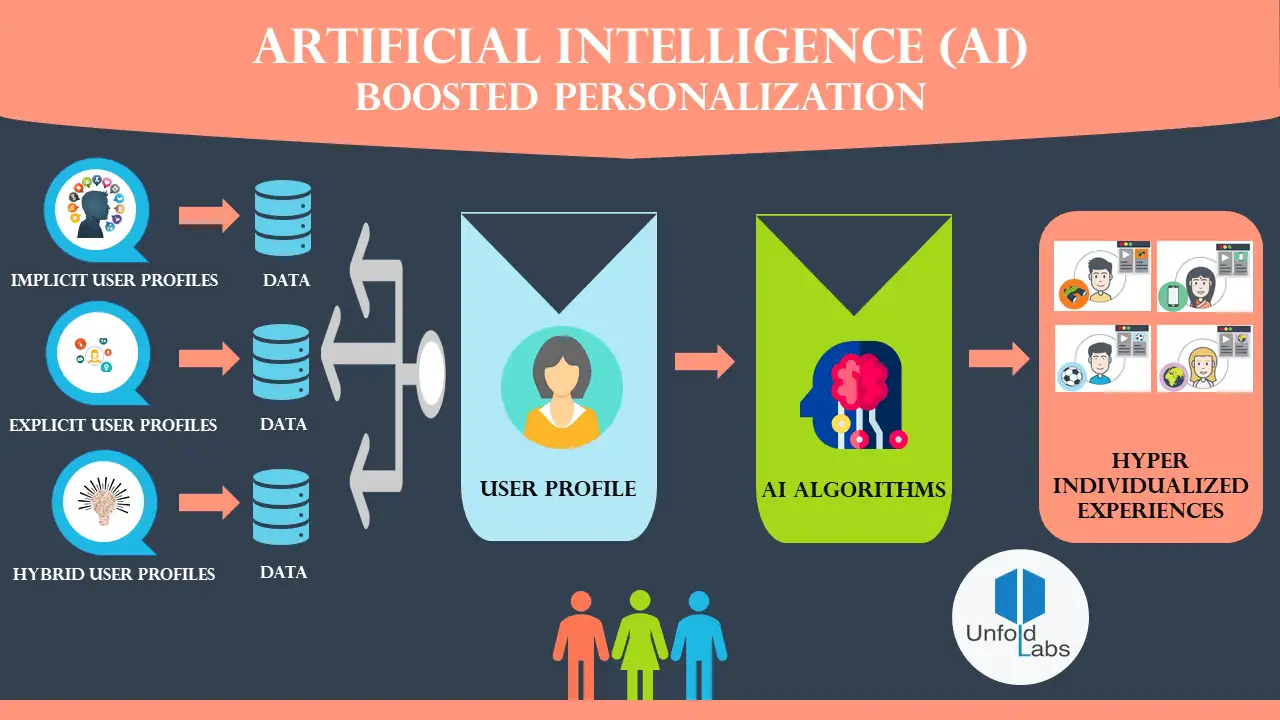AI and email marketing are a match made in heaven! Leverage AI-driven solutions to take your campaigns to the next level with superior personalization, segmentation, and catchy subject lines. Be mindful of potential downsides and ethical considerations and plan accordingly for success.
Personalization at Scale:
AI empowers marketers to deliver hyper-personalized email content tailored to each recipient’s preferences, behavior, and past interactions. By leveraging machine learning algorithms, marketers can segment audiences more effectively, analyze customer data in real-time, and deliver targeted messages that resonate with individual subscribers, leading to higher engagement and conversion rates.
Predictive Analytics:
AI-driven predictive analytics enable marketers to anticipate customer behaviors and preferences, allowing for more strategic campaign planning and optimization. By analyzing historical data and identifying patterns, AI algorithms can predict future outcomes. Marketers can optimize their email strategies by accurately predicting email open rates, click-through rates, and purchase likelihood.
Automated Campaign Optimization:

AI-powered automation tools streamline the email marketing workflow, from content creation and scheduling to performance tracking and optimization. Incorporating automation into email marketing can be a game-changer for businesses. Automating tasks like A/B testing, subject line optimization, and send-time optimization can save time and resources and improve the effectiveness of email campaigns.
Dynamic Content Generation:
AI algorithms enable dynamic content generation, allowing marketers to create personalized email content on the fly based on individual subscriber data and preferences. From product recommendations and customized offers to dynamic imagery and real-time updates, dynamic content ensures that each email is relevant and engaging, driving higher conversion rates and customer satisfaction.
Enhanced Segmentation and Targeting:

AI-powered segmentation tools help marketers segment email lists based on demographics, behavior, and engagement history. Precise audience segmentation allows for more targeted content delivery, increasing engagement and conversion rates.
Challenges and Considerations:
Although AI implementation in email marketing offers potential benefits, it also poses challenges and considerations.Some of these include data privacy and security concerns, the need for skilled professionals, and potential algorithmic bias.
Data Privacy and Compliance:
AI-powered email marketers must comply with data privacy regulations like GDPR and CCPA. Transparency about data collection, storage, and usage is crucial for building trust with subscribers and avoiding legal and reputational risks.
Integration and Adoption:
Integrating AI-driven solutions into email marketing platforms and workflows may pose technical and organizational challenges. To fully realize AI’s potential in email marketing, marketers must invest in training and upskilling their teams, aligning internal processes and systems, and overcoming resistance to change.






